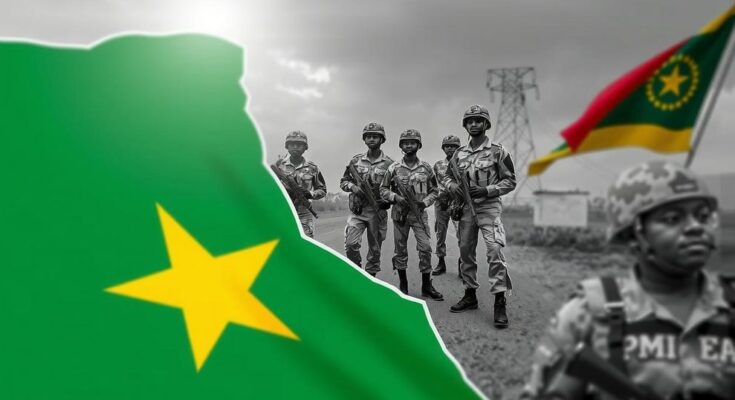Two years after the Tigray war ended with a peace agreement in Pretoria, Eritrean forces still occupy key border regions in Ethiopia, despite the accord calling for their withdrawal. The conflict resulted in around 600,000 deaths and severe humanitarian crises, with the population feeling overlooked and oppressed under continued military control. The exclusion of Eritrean and allied forces from the peace negotiations raises critical questions about the effectiveness of the peace efforts.
Two years following the Pretoria peace agreements aimed at resolving the Tigray war, Eritrean forces continue to occupy vast border regions in Ethiopia, exacerbating the plight of local populations. The conflict, which erupted in November 2020, resulted in the tragic loss of approximately 600,000 lives, leaving deep scars on the affected communities. Despite the peace deal’s stipulations for the withdrawal of all foreign troops, Eritrean soldiers have remained entrenched, defying the terms of the agreement. Reports from the ground reveal that residents feel neglected and live under the rigid control of occupying forces, deprived of rights and services due to the ongoing military presence. Furthermore, the non-involvement of key stakeholders, such as the Eritrean government and the Amhara militias in the negotiations, raises significant questions about the efficacy and sincerity of the peace efforts undertaken thus far.
The Tigray war, initiated in November 2020, involved a fierce conflict between the Ethiopian federal government and the Tigray People’s Liberation Front (TPLF), which governed the Tigray region. The situation deteriorated rapidly, prompting widespread suffering, humanitarian crises, and significant loss of life. In November 2022, a peace agreement was brokered in Pretoria, South Africa, marking an attempt to bring an end to the two-year-long hostilities. This agreement, however, did not account for the presence of Eritrean forces, who were crucial allies of the federal government during the conflict, thus complicating the restoration of peace and stability in the region.
In summary, despite the signing of a peace agreement aimed at resolving the Tigray conflict, Eritrean forces remain in control of essential border areas, creating a precarious situation for local inhabitants. The failure of Eritrea to withdraw its troops as mandated has led to a continued sense of abandonment among the populace, raising urgent concerns about their safety and autonomy. The exclusion of Eritrean forces from the peace talks has further complicated the prospects for lasting peace in the region, underlining the need for a more inclusive approach in future negotiations.
Original Source: www.france24.com




